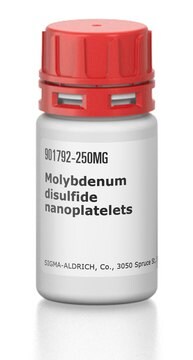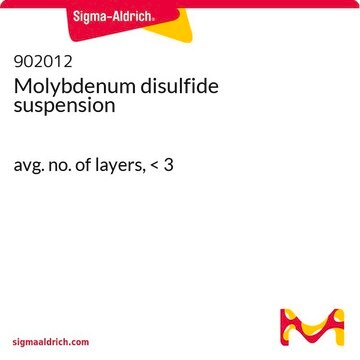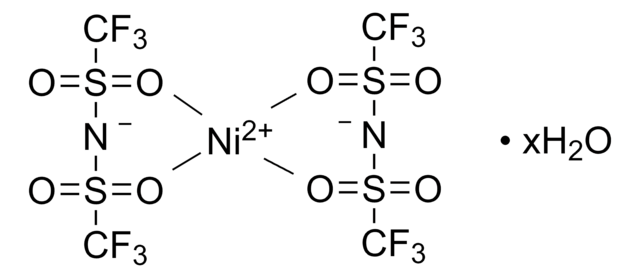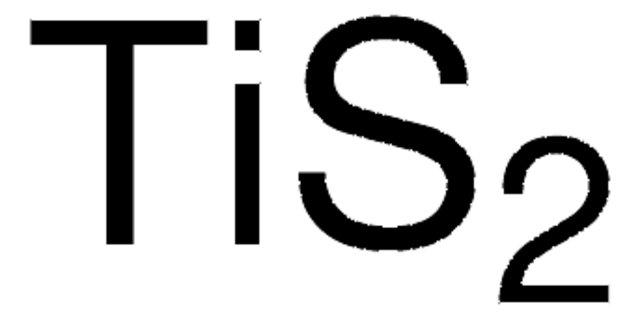804169
Molybdenum(IV) sulfide
nanopowder, 90 nm diameter (APS), 99% trace metals basis
Synonym(s):
Molybdenum disulfide
About This Item
Recommended Products
Quality Level
Assay
99% trace metals basis
form
nanopowder
powder
diameter
90 nm (APS)
density
5.06 g/mL at 25 °C (lit.)
SMILES string
S=[Mo]=S
InChI
1S/Mo.2S
InChI key
CWQXQMHSOZUFJS-UHFFFAOYSA-N
Looking for similar products? Visit Product Comparison Guide
Application
Storage Class Code
11 - Combustible Solids
WGK
nwg
Flash Point(F)
Not applicable
Flash Point(C)
Not applicable
Choose from one of the most recent versions:
Certificates of Analysis (COA)
Don't see the Right Version?
If you require a particular version, you can look up a specific certificate by the Lot or Batch number.
Already Own This Product?
Find documentation for the products that you have recently purchased in the Document Library.
Customers Also Viewed
Articles
Catalytic water splitting produces hydrogen crucial for renewable energy, petroleum refining, and chemical industry applications like methanol production.
Our team of scientists has experience in all areas of research including Life Science, Material Science, Chemical Synthesis, Chromatography, Analytical and many others.
Contact Technical Service

